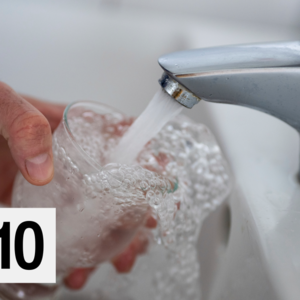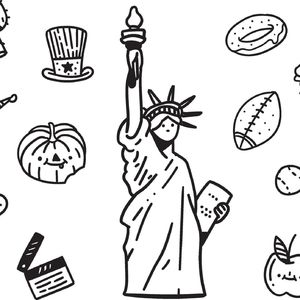COY WIRE, CNN 10 ANCHOR: We begin today in Utah, which this week became the first U.S. state to ban the use of fluoride in public water. Fluoride is a natural occurring mineral that can be found in soil, plants, and food in tiny amounts.
And studies show that at optimal levels, it helps prevent tooth decay, helps prevent cavities. The U.S. has added it to public drinking water systems since the 1940s to improve dental health, and the practice is considered to be one of the greatest public health achievements of the last century.
But it's created some contretemps, with debate over adding fluoride to public water ramping up, and some states like Florida are following in Utah's footsteps to pass laws to ban it.
Those in favor of banning fluoride in drinking water point to research that shows consumption of high levels of fluoride could cause adverse health effects in children. But exposure to levels that concentrated are rarely seen in the US.
Proponents of the ban add that when it comes to fluoride improving dental health, evidence is mixed, and some studies find that our modern dental hygiene routines, like brushing and flossing regularly, have had more of an impact than fluoride in drinking water.
Other advocates of the ban acknowledge that fluoride does have benefits, but people should have the individual choice to not have it added to their drinking water.
Now to one of the biggest pop culture moments in the news this week, the MET Gala at New York's Metropolitan Museum of Art.
Celebs like Rihanna, Bad Bunny, Janelle Monáe, Simone Biles and many more, rocking the blue carpet in many custom looks. Hat tip to OutKast's Andre 3000 for sporting an entire piano. He looks like Brolicia Keys out there.
But the very exclusive MET Gala isn't just an extravagant fashion show. It's a major fundraiser for the museum's Costume Institute, which is a time capsule of sorts for fashion with more than 33,000 pieces dating back to the 15th century.
Each year there's a theme that parallels one of the exhibits, and this year's theme is Tailored for You. The exhibit explores style from the early 1900s Harlem Renaissance movement called Black Dandyism, known for wide-shouldered, high-waisted zoot suits popularized during the time.
All right, would you fly on a plane that flies itself? We've covered the rapid advancements of self-driving cars and taxis and posed questions about how you feel about those. Now we may be one step closer to air travelers having their planes operate without a human pilot at the helm.
Our aviation correspondent Pete Muntean shows us a new development in aviation, an automated landing function for small planes built with the goal of saving lives in an emergency.
Pete Muntean: I'm about to go fly in a plane that can land itself. It answers the age-old question, what happens if your pilot can't fly anymore?
That system is called Safe Return Autoland, meant to save passengers with no flying experience if the pilot becomes incapacitated, which happens on private planes more often than you'd think. Now, I'm along for the ride.
Emergency Autoland activating.
This is a demonstration by Cirrus Aircraft, which is now installing this in its entry-level planes with one engine and one pilot.
--So this is essentially an autonomous airplane now. --Absolutely.
--This is kind of weird for me. --I know. Well, if you can think about it, the autopilot is flying the airplane, but the safe return system is acting as the pilot.
Safe Return is now making all the judgment calls, flying around hazards and lining up with the best runway.
--Throttle came out. Hands off. --Hands off, feet off. And beautiful.
--Pretty good landing, I'm told.--So those brakes are going to start engaging. Here we are. Right on the center line.
The system brings the plane to a stop and even shuts down the engine. The latest safety innovation meant to save lives in the sky.
Wire: Some of us might be doing a double take next time we walk down the toy aisle. Mattel, the makers of Barbie, Hot Wheels, Fisher-Price, Polly Pocket, and others, say prices are about to go up due to the recently announced 145% tariff placed on Chinese goods.
80% of all toys in the US come from China, did you know? So it would only make sense that the tariff would end up costing toy shoppers dollars and cents.
This news is a microcosm of how many different types of businesses will be looking to adapt and stay profitable and ultimately how consumers will be affected by likely unavoidable price increases with new tariffs.
While Mattel CEO Enon Kryze didn't say exactly how much costs of their toys are going to go up, he did say price adjustments are part of their plan to adapt.
📰字数限制, 完整文本见公众号【琐简英语】,回复"1"可进【打卡交流群】


CNN 10|Drinking water debate, automated landing, China toys
6分钟 · 186·
186· 0
0
 186
186 0
0
